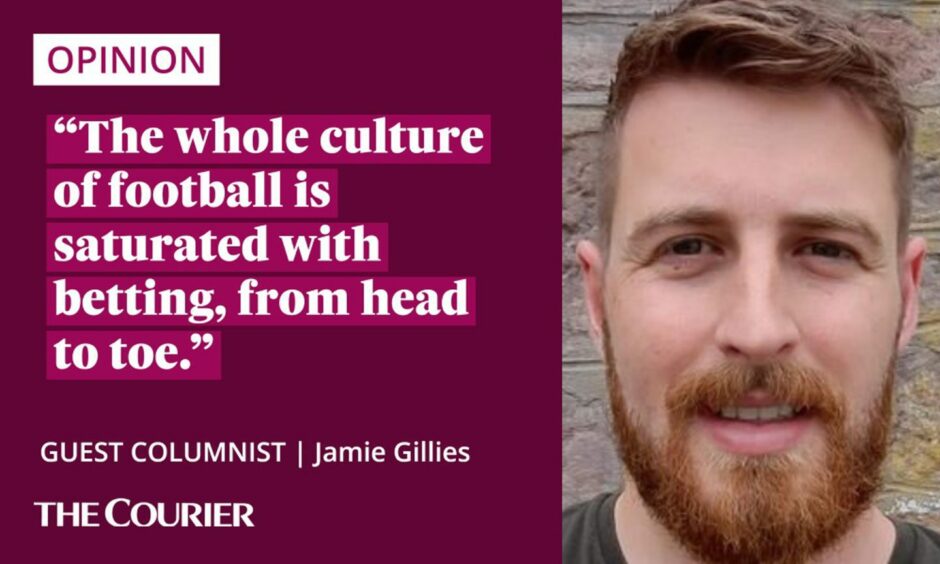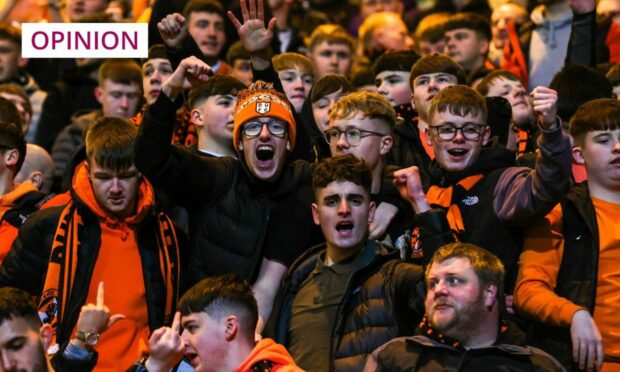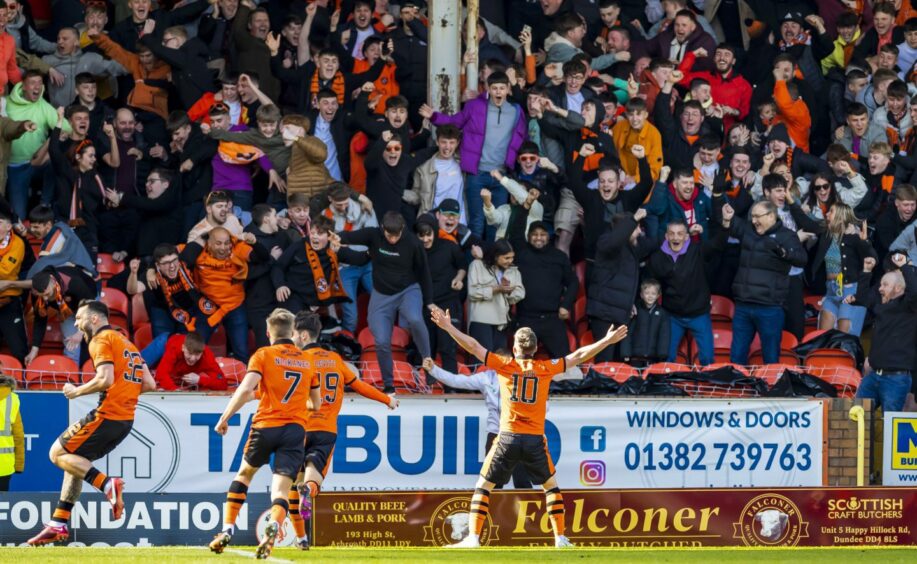Growing up in the Mearns, halfway between Aberdeen and Dundee, my football loyalties were always torn.
Should I support the Dons? Or should I choose a Dundee side, like the resurgent Dundee United, who were popular with my contemporaries at school?
In the end, I settled on Aberdeen, where I was born and spent my formative years. I’ve always kept a soft spot for The Tangerines though.
That soft spot hardened significantly last week when United announced its new shirt sponsor for the 2022/23 season.
In partnering with an online gambling company, QuinnCasino, the club has joined the big dogs, Rangers and Celtic, who are already paired with betting businesses.

That’s despite a societal backlash against such partnerships.
And given the harms caused by problem gambling, observers are growing increasingly uncomfortable with the industry’s stranglehold on football.
Gambling leads to lasting harm
I’m not against gambling per se. I’ve lived with people who enjoy the odd bet and had a flutter once or twice myself.
For the vast majority of people, it’s a bit of fun.
Huge amounts are not staked, and a loss or two puts the brakes on betting until the next payday.
For a significant minority, however, gambling can become more than a bit of fun.
It can develop into a raging addiction that eats up their time and their finances, takes a torch to relationships and destroys their mental health.
🤝 We are delighted to announce @Quinn_Bet as our new principal partner for the 2022/23 campaign, with their logo set to adorn the front of our shirts next season
Read more 👇 | #UnitedTogether
— Dundee United FC (@dundeeunitedfc) June 1, 2022
The number of people locked in gambling addiction in the UK at present is thought to be north of 400,000, with many more at risk.
On average, one person a day commits suicide as a result of problem gambling.
The economic toll of gambling-related harms is also staggering.
Analysis by the UK Government last year suggested the annual economic burden of harmful gambling is approximately £1.27 billion.
Gambling sponsorship leads football fans into temptation
When football clubs partner with betting companies and proudly display their logos on shirts, stadium placards, online and on social media it drives punters to gambling sites and puts them at a higher risk of developing a problem.
It also makes it very difficult for fans who are struggling with addiction to resist the strong compulsion to place another bet.
The whole culture of football is saturated with betting, from head to toe.
And betting companies are failing woefully when it comes to protecting their customers.
Since 2005, they have been bound by law to contribute a portion of their annual gambling yield to fund support for gambling addicts.
Their contributions have been a paltry amount since then, around 0.1% in a good year.
At the same time, betting CEOs have raked in tens of millions in bonuses.
The industry at large is driven by greed, and lacks accountability.
It puts profits before people.
Will gambling go the way of tobacco?
Back in the day, sports teams partnered with big tobacco.
It was common to see strips and stadiums emblazoned with the logos of major cigarette companies.
In time, as the public caught on to the profound harms of smoking, that partnership soured.
Football teams decided they could not in good conscience continue to endorse a product that was deeply harmful to consumers, and highly addictive.
When football clubs ditch gambling sponsors, more fans buy more shirts 👇 pic.twitter.com/9cHnr20ct8
— The Big Step (@the_bigstep) January 18, 2022
It was a moral decision to move away from that kind of sponsorship.
More and more teams are spotting the parallel problem of football allying itself with big betting.
Gambling is also highly addictive and can lead to profound harms, driving punters of all backgrounds into debt, unemployment, relationship breakdown, depression and even suicide.
Premier League teams south of the border are moving away from gambling sponsors, and there is a growing consensus behind this action.
Scotland can lead on gambling sponsorship in football
Change is coming at the legislative level, at some point.
The UK Government has pledged reform of the UK’s dated gambling framework.
Whether or not the forthcoming reforms have any real teeth has yet to be seen.
And whatever politicians opt to do in the months ahead, football clubs in Scotland have the chance to chart their own path.
Unlike Dundee United, they can do the right thing and seek more ethical sponsors in the seasons to come.
Imagine football in Scotland that was free from big betting, and devoted wholeheartedly to the welfare of fans.
Jamie Gillies is a commentator based in the north east of Scotland. He Tweets at @jmgillies.












Conversation